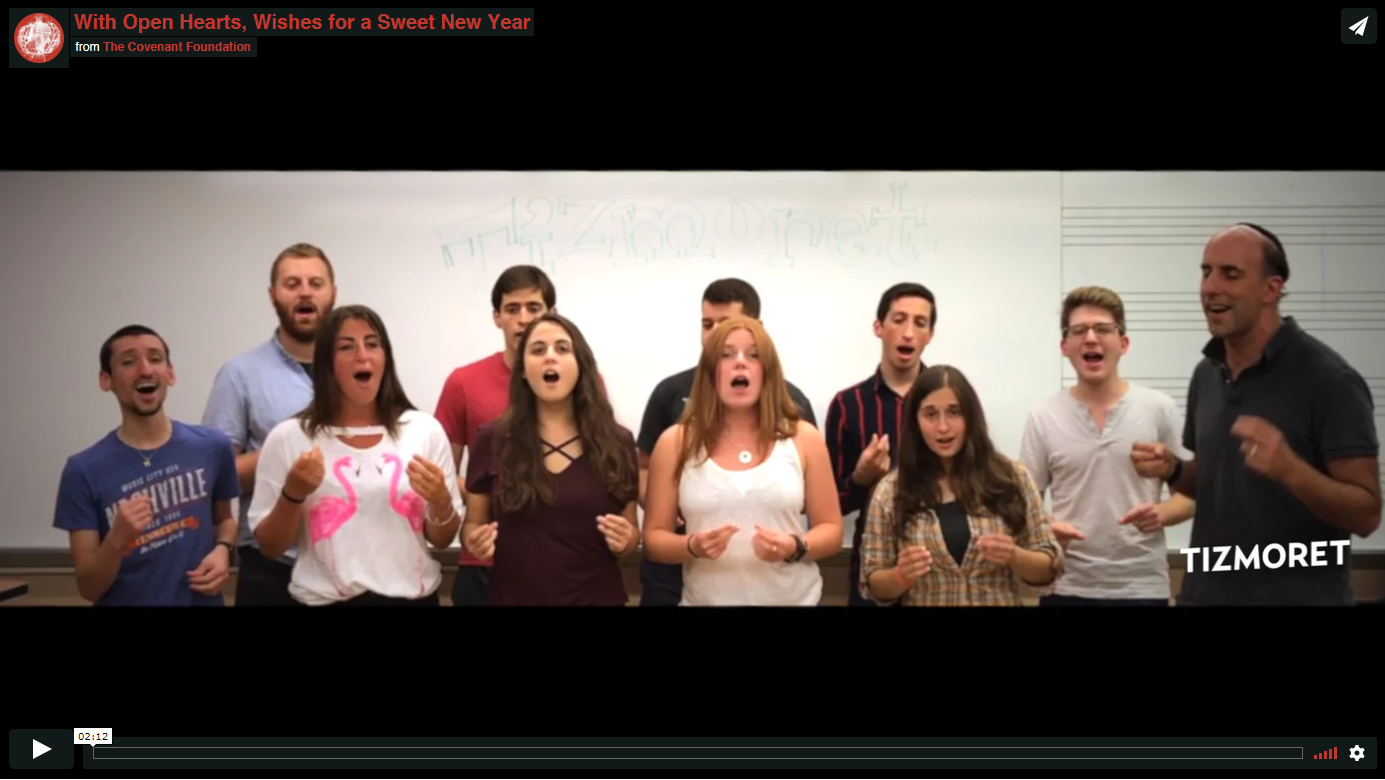The Gefilte Manifesto: Making Old Traditions New Again

An “intergenerational” cookbook written from the perspective of two millennial chefs—Jeffrey Yoskowitz and Liz Alpern —The Gefilte Manifesto: New Recipes for Old World Jewish Foods was published in September. The Gefilteria has been featured in the New York Times, NPR, The New Yorker, Vogue, Forbes and in many other places and now with a cookbook under their belts, their stars are sure to rise even higher. While they’ve spent the early fall crisscrossing the country on a jam-packed book tour, both authors took a moment away from their busy book launch to chat with us about food, tradition and making the old, new again.
{{news_image}}
Tell us about the inspiration for the Gefilte Manifesto Cookbook:
Liz: We see this book as a conversation between our generation and those who came before us, but the book is not just about recipes. Rather, it’s about the knowledge and wisdom of learning and passing on the stories of our grandparents’ generation and embracing the best of those traditions that have been handed down. We see our work as both a business and a movement—when we co-founded the Gefilteria in 2011, we started with a manifesto: a call to action to revitalize Ashkenazi Jewish life.
Jeffrey: I went to a Jewish Day School, but aside from some study in my Jewish history classes, I didn’t learn about Ashkenazi culture; everything I knew came from my home. “Jew” as a category is far too broad. There were students I was in school with who were Sephardic, North African. Today, there’s a disambiguation happening; people are getting to know their ethnic identities a bit more. Whereas when we were younger we might have lumped different kinds of ethnic foods together—falafel and brisket—today, we’re asking questions: What is this? Where does it come from? Why did my ancestors eat it? What’s the history there?
Through the creation of this book we’ve probed deeper and deeper and when you do that, you begin to realize that there’s so much more to Jewish cuisine than the towers of pastrami at the Jewish deli. Take pickles, for example. Actually, pickling is about persevering vegetables through the colder seasons; many “Jewish” pickles were salt-water pickles, naturally fermented and probiotic, and meant to help you digest the meat and potatoes that Ashkenazi Jews in certain parts of Europe would eat during winter. When you begin to unpack the history, you also begin to understand that there’s a lot of wisdom in the tradition.
So much of the book is about us thinking about and appreciating that wisdom and that resourcefulness—and not incidentally, this is a big part of what it means to cook.
What do you hope the publication of this book—and on a larger scale—the “manifesto”—accomplishes in this particular cultural moment?
Jeffrey: Our goal is to restore a sense of pride for Jews of Ashkenazi origin; we grew up loving these foods but not necessarily proud of them and maybe even a little embarrassed by their representation in the kosher aisle of the supermarket; products sold there were never that good. But when done right, these dishes can be special, meaningful and delicious.
What surprised you during the writing of The Manifesto?
Jeffrey: When I was a student studying in South Africa, I had two roommates; one was from Botswana and one was from Zululand. I remember one day, they were talking about their people’s methods of cattle slaughter and [while initially I might have thought I didn’t have much to contribute,] it dawned on me that my people have rituals for cattle slaughter as well—Jewish people have a method for this—but this wasn’t something I had ever tied to my own cultural identity. It was surprising to uncover—or perhaps “recover”—parts of myself through this process.
Liz: As we researched and traveled around the world, we discovered Jewish foods we had never heard about. For example, in our book we have four different recipes for kvass, a certain kind of fermented tonic that is very common in Eastern Europe, even today. We discovered types of kvass (a traditional Slavic fermented beverage) that we’d never seen before (see the cookbook for beet and ginger, lettuce, Russian rye and parsley kumbucha kvass recipes).
It also surprised me to learn how many people had never had homemade versions of certain foods. There were so many people we encountered who said, “my family never made these foods,” and there was much subsequent excitement when they learned that they could make these foods on their own. We couldn’t have anticipated how strong the feedback would be to this project, and that was definitely a motivating factor for us, to wake up every day and write this 350-page book.
Cooking is definitely having a cultural moment right now, would you agree?
Jeffrey: There’s definitely a heightened interest in being in the kitchen for sure; kids are watching the Food Network and we’ve found as we’ve visited schools that kids are really interested in Jewish food and discovering more about it. We recently taught a class where half of the students were from the former Soviet Union and Ukraine, and half were American with Ashkenazi roots. [And while there’s an expectation that just a few generations later, kids would still know about the staples of Eastern European foods,] many of the American students had never heard about borscht. We took some time to teach them about the Borscht Belt and the Catskills and all of the Jewish cultural history there. The learning curve was steep. While some had heard of different kinds of Israeli foods, many hadn’t heard of some of the most basic foods from the Ashkenazi tradition, like mandel bread, kichel and compote.
For us, the adventure began with artisanal gefilte fish, and now, we’re on a mission to revitalize and inspire people in different ways, to reclaim our traditional Jewish foods and serve them with pride. As we write in the Manifesto, the goal is “to bring our foods out of the jar and back to the street, to the pushcarts where we began, to the flavors of the people.”
By Adina Kay-Gross, for The Covenant Foundation
Testing Testing

